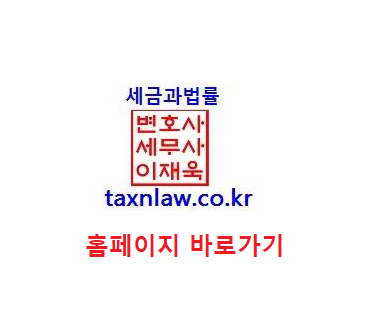"It's not a house price, it's not a tax... We need to correct the government's 'abuse of taxation'"
Reporter Yeon Gyu-wook Qyon@mk.co.kr
Enter: 2022-12-22 17:33:39
We hear from Minister of Land, Infrastructure and Transport Won Hee-ryong
◆ The person Maekyung met ◆
photo description photo enlargement
Minister of Land, Infrastructure and Transport Won Hee-ryong poses for a photo in front of the Christmas tree in the lobby on the first floor of the Maekyung Media Center in Jung-gu, Seoul on the 20th. <Reporter Kim Ho-young>
Minister Won Hee-ryong, who became the first Minister of Land, Infrastructure and Transport in the new government, is spending days without blinking his eyes while overcoming difficulties. In addition to normalizing real estate regulations, which was the culprit of soaring house prices, he is actively supporting overseas construction orders by going back and forth to Saudi Arabia and Indonesia. He recently fought a bloody battle with the construction union following the cargo solidarity.
Minister Won predicted that the 'Special Act on New Towns in the 1st Phase' would contain plans to revitalize not only the 1st phase new cities such as Ilsan and Bundang, but also reconstruction projects in old downtowns across the country. This means that there is a high possibility that the bill will be promoted in the form of a 'general law' commonly applied to old downtowns, rather than in the form of a 'special law' limited to a specific area. Minister Won received numerous questions as a lecturer at the Economist Club held at the Maekyung Media Center on the 20th. Minister Won's answers were summarized in a question-and-answer format.
picture explanation
―Recently, the government is actively easing real estate taxes. I also decided to lower the tax burden on multi-homed people.
The firm position of the Yoon Seok-yeol administration is to normalize excessive regulation and excessive public burden during the Moon Jae-in administration.
It is seen as normalization to spit out all the house prices and tax burdens that have risen during the price surge in the last five years of the government.
Suddenly, in a short period of time, it is the wrong tax to pay a level of tax that exceeds one's ability to bear.
Taxes are not a system to set house prices and punish them.
Taxes are in line with one's ability to pay, and for the minimum necessary redistribution and financing of the state.
Too many side effects occur when tax policies are used to punish multi-homed people and the wealthy or as a means to control real estate prices.
Although it will not give up tax justice, the government's goal is to normalize taxation rights that have been abused without grounds.
―The voices demanding the lifting of additional regulatory areas are growing.
▷ Housing transactions are more cut off than expected. At first, I thought of normalizing regulations gradually, but I need to speed up the pace. For the effect of a soft landing on the immediate economic situation, Seoul is also considering lifting some regulatory areas in the near future. It is still under internal review. The timing will not go beyond January.
―In February of next year, the first new city special law is about to be proposed. I said I would include a separate reconstruction deregulation plan.
▷If the recently announced safety diagnosis criteria (30% of structural safety evaluation) are applied to the first-phase new towns that are nearing the end of the reconstruction period (30 years), they will be able to pass only after several years. At that time, 300,000 households in five new cities will be targeted at once. This is a special case. Jeonse crisis can explode, and technical problems are bound to arise. In cases where there is a clear story, such as the first-generation new town, the purpose is to establish a reasonable standard and include it in a special law.
―The issue of fairness with other regions is raised.
There are more old provincial cities than first-generation new cities. For example, in Anyang, the existing old city center is much older than Pyeongchon, the first new city, and the desire for maintenance is strong. If the special law is passed, it will become Pyeongchon, but the old downtown may not. So, I think that old cities across the country, especially those with old downtowns, have no choice but to go along with the special law. The National Assembly also believes that the first new city special law will eventually be treated as a general law for old downtowns across the country. Considering everything, we are making final preparations for the proposal of the special law.
―Following the cargo union, you declared war with the construction union.
It is not new today that the KCTU has been forcing them to hire their own members and use equipment. In addition, they are ripping off 6 million won a month for each tower crane across the country in the name of monthly salary without any cost, saying, 'I will not bully you, so pay me.' If their members are not used, they block the entrance and stop the construction site altogether. This is all because the last Moon Jae-in administration turned a blind eye to the illegal activities of the Korean Confederation of Trade Unions. Over the past five years, construction sites have become lawless. Following the cargo union, the construction union is also taking responsibility and trying to make sure. I will definitely achieve normalization.
―Low birth rates and population decline are particularly serious problems in rural areas. The Ministry of Land, Infrastructure and Transport's strategy.
▷Population decline is directly related to the disappearance of local areas, and this is a national task. The Ministry of Land, Infrastructure and Transport is responsible for regulating land use and projects. Several provincial cities such as Changwon, Gwangju, and Ulsan are actively putting forth many development plans for industrial development, investment, and tourism. However, among these, there are many that cannot be used because of inadequate paper or regulations. Accordingly, the Ministry of Land, Transport and Maritime Affairs plans to give opportunities to the provinces by releasing the green belt. Let local governments come up with plans more competitively, and if it is a reasonable plan, we want to boldly release the green belt to give a proper opportunity to those who want to do something. In nurturing regional hubs, we are preparing to do more drastic measures such as the lifting of green belts, city-related regulations, and support for industries.
―The Board of Audit and Inspection is looking into the Moon Jae-in administration’s suspicion of manipulation of real estate-related statistics. Current Ministry of Land, Infrastructure and Transport employees are also included.
▷It is very burdensome and heartbreaking because the young practitioners who are working with me are also involved. However, can only public officials in charge be held accountable? In the world of civil servants, even vice ministers cannot go against ministerial orders. Even more so, the presidential office and the Blue House. In the end, who did it matters.
―You also actively supported overseas construction projects such as Neom City in Saudi Arabia.






